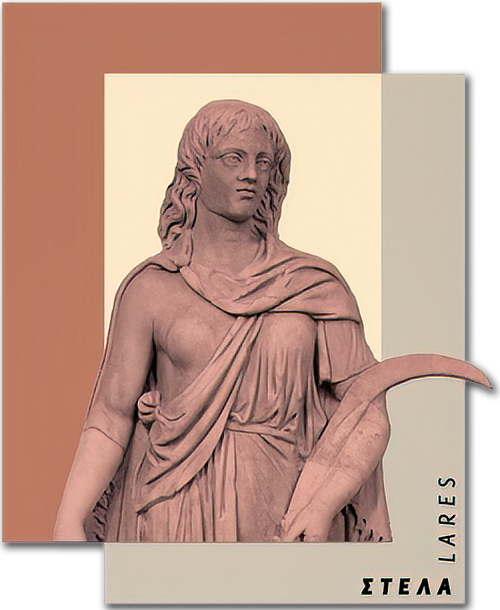Our mission
The Laboratory for the Study of Latin Language, Literature, and Culture (ΣΤΕΛΑ/LARES) of the Department of Humanities at Democritus University of Thrace is dedicated to meeting research and educational needs related to Latin language, literature, and culture.
It promotes research on philological editions, commentaries, and translations of Latin texts from all periods. Additionally, the Laboratory supports the study and interpretation of Latin literature using modern methodological tools and interdisciplinary approaches, incorporating fields such as digital humanities, ecocriticism, post-humanism, cognitive studies, reception theory, and gender studies, among others.
ΣΤΕΛΑ/LARES also aims to promote Classics and Humanities in general, with a focus on the intellectual legacy of Roman civilization as an essential part of both Modern Greek and European cultural traditions. The Laboratory also strives to build partnerships with academic institutions and research centres, both in Greece and internationally, fostering collaboration and the exchange of scholarly expertise.
Other key objectives
Other key objectives of ΣΤΕΛΑ/LARES include:
- addressing the research and teaching needs of the Department of Greek Philology, as well as other departments within the School of Humanities of Democritus University of Thrace, at both the undergraduate and postgraduate levels, in areas aligned with the Laboratory’s scope.
- publishing scholarly articles, studies, monographs, and the proceedings of conferences and workshops on topics central to the Laboratory's research.
- organizing academic events such as conferences, workshops, seminars, lectures, training programmes, summer schools, and educational trips related to the Laboratory's areas of focus.
- developing innovative teaching methods and programmes designed to enhance the instruction of classical languages and the teaching of the classical world in secondary education.
- developing innovative teaching methods and programmes designed to enhance the instruction of classical languages and the teaching of the classical world in secondary education.
- developing innovative teaching methods and the implementation of training programmes for teachers, aimed at modernizing the teaching of classical languages and at providing practical and substantial support for classical studies in secondary education.
Head of Laboratory (elect): Assoc. Prof. Charilaos Michalopoulos (Rectoral Confirmation of Election: ∆ΠΘ/∆∆Κ/49813/5411/03-06-2024). For the Laboratory’s regulations see Government Gazette (FEK)1623/11-3-2024 τ. Β΄.
